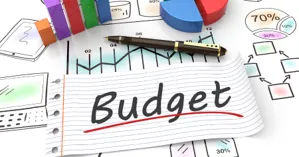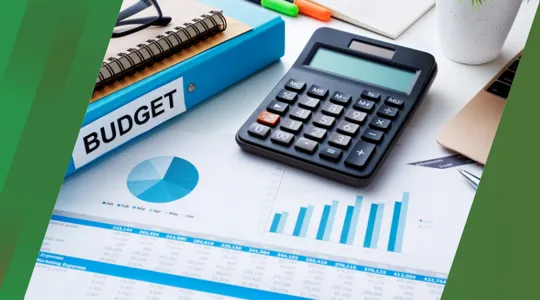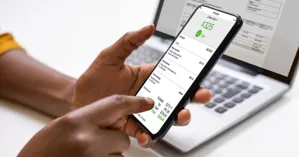- Quick Summary
- Understand Minimalist Budgeting
- Identify Your Financial Goals
- Develop Your Own Budget for Your Needs
- Use a 50/20/30 Budget
- Track Your Spending Habits
- Streamline Your Accounts
- Baby Steps First
- Don’t Chase Fashion Trends
- Repair Broken Items
- Enjoy Experiences
- Find Free or Low-Cost Alternatives
- Automate Your Finances
- Avoid Meaningless Expenses
- Conclusion

- Quick Summary
- Understand Minimalist Budgeting
- Identify Your Financial Goals
- Develop Your Own Budget for Your Needs
- Use a 50/20/30 Budget
- Track Your Spending Habits
- Streamline Your Accounts
- Baby Steps First
- Don’t Chase Fashion Trends
- Repair Broken Items
- Enjoy Experiences
- Find Free or Low-Cost Alternatives
- Automate Your Finances
- Avoid Meaningless Expenses
- Conclusion
Minimalism is the hottest trend. It brings life down to the basics. One of those basics is not making a lot of money. Fortunately, having a limited income goes well with a minimalist lifestyle. Here are 15 ways to live comfortably on a minimalist budget.
Adopting a minimalist lifestyle can help in saving money and reducing monthly expenses, allowing you to focus on what truly adds value to your life.
1. Understand Minimalist Budgeting

Minimalist budgeting is a financial approach that involves simplifying your spending habits and prioritizing what’s truly important to you. It’s about creating a more intentional and mindful relationship with money, rather than just cutting back on expenses. By adopting a minimalist budget, you can reduce financial stress, increase savings, and achieve a more fulfilling life. This approach encourages you to focus on your core values and make deliberate choices about how you spend money, leading to a more balanced and satisfying financial life.
2. Identify Your Financial Goals

Before living comfortably, you need to identify your goals and values. Whether paying off student loans or saving more money for retirement, you should have a goal. Identifying your priorities is imperative when you’re tempted to overspend. Putting money away for that big trip is easier if you don’t buy those new shoes that go with your jacket. Additionally, avoiding the 'monthly payment' mindset can help prevent debt accumulation and promote long-term financial clarity.
3. Develop Your Own Budget for Your Needs

Once you know your goals, develop a budget. List your expenses and cut back on the unnecessary ones to reduce your monthly expenses and simplify financial management. Consider the 50/30/20 budget. That’s where 50 percent of your income goes toward necessities, 30 percent toward wants, and 20 percent toward savings or debt. Tweak these numbers to meet your circumstances, but once you have a budget, stick with it.
4. Use a 50/20/30 Budget

The 50/20/30 budget is a simple and effective way to allocate your income. The idea is to divide your income into three categories: 50% for necessary expenses, 20% for savings and debt repayment, and 30% for discretionary spending. This framework can help you create a balanced budget and achieve financial stability. For example, if you earn $4,000 per month, you would allocate $2,000 for necessary expenses, $800 for savings and debt repayment, and $1,200 for discretionary spending. By following this structure, you can ensure that your financial needs are met while still allowing room for some flexibility and enjoyment.
5. Track Your Spending Habits

While developing a budget, spend a week or month tracking every dime you spend and where you spend it. You may discover expenses you can cut that you didn’t realize you had. Many can’t believe they’re spending $120 monthly at their local coffee shop.
Additionally, having one savings account can simplify your financial tracking, making it easier to monitor your progress and achieve your financial goals.
6. Streamline Your Accounts

Having numerous bank accounts, credit cards, and investment portfolios can cause financial clutter. Consolidating your finances can help you gain better control over your money and reduce mental clutter. Consider simplifying your accounts by using a single savings account with “buckets” for different purposes. Budgeting apps like YNAB can also help you streamline your accounts and track your spending. By streamlining your accounts, you can save time and reduce stress related to financial management, making it easier to budget money and focus on your financial goals.
7. Baby Steps First

Don’t make sweeping changes. Trying to do too much at once will exhaust and demotivate you. You’ll feel like you’re depriving yourself instead of helping.
Start with small changes like setting up a retirement savings plan.
8. Don’t Chase Fashion Trends

Chasing fashion trends only stuffs your closet and busts your budget. When buying clothing, stick with the classics you can mix and match with your other clothes.
9. Repair Broken Items

Don’t throw broken items away. By repairing, you’ll save money and not create waste. Fixing your stuff lets you save money and live more sustainably. You’ll build valuable skills like resourcefulness and problem-solving, contributing to saving money by avoiding unnecessary purchases.
10. Enjoy Experiences

As a minimalist, you don't have to live a boring and strictly frugal lifestyle. It just means spending money with intention. Instead of material goods, focus on experiences. Spend time with family and friends. Board night is fun and low-cost. Or you could enjoy a favorite hobby.
11. Find Free or Low-Cost Alternatives

Finding free or low-cost alternatives can help you save money and achieve your financial goals. Consider alternatives to expensive hobbies, entertainment, and lifestyle choices. For example, instead of joining a gym, try bodyweight exercises or outdoor activities. Instead of dining out, try cooking at home or meal prepping. By finding free or low-cost alternatives, you can save a few dollars here and there, which can add up to make a big difference in your financial life. These small changes can help you save money without sacrificing enjoyment or fulfillment.
12. Automate Your Finances

Automating your finances can help you save time and reduce stress related to financial management. Consider setting up automatic transfers for your bills, savings, and debt repayment. You can also use budgeting apps to automate your finances and track your spending. By automating your finances, you can ensure that you’re consistently working towards your financial goals, even when you’re not actively thinking about it. This can help you build a solid financial foundation and achieve a more fulfilling life, as you’ll have more time and mental energy to focus on what truly matters.
13. Avoid Meaningless Expenses

Do you need the new iPhone or those new clothes? Avoid these meaningless expenses and put that money into retirement savings instead. You see that having your money consistently grow is more satisfying.
Conclusion
You don’t have to deny yourself when you budget for a minimalist life. The point is to be intentional about how you spend money and keep your home. A simpler life is more calming.
Additionally, embracing a minimalist lifestyle can lead to a happier bank account by reducing unnecessary expenses and saving money.





